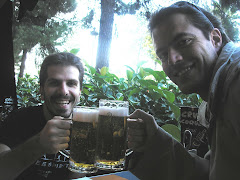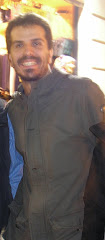MOSE Project
An Innovative Training MOdel for Social Enterprises Professionals/Qualifications
The Leonardo da Vinci II Program has among it’s objectives that of developing, through transnational cooperation, the quality, innovation and the size of European Professional Training, adding to the promotion of a knowledgeable Europe. Within the scope of the Program, the Pilot Project “MOSE – An Innovative Training Model for Social Enterprise Professional/Qualifications” was developed, which focuses its attention on the Third Sector through the study and the definition of a Professional Training Model for Manager’s of Social Enterprises. This extremely innovative model, must first emphasise the experience ofbest practices, and from there define an integrated training course where the formal and informal approaches coexist and complement each other, with the final objective of creating management systems more adequate to the development of Social Enterprises at a European level. The model, which will be identified within the next two years of the project, will seek to achieve two main objectives:
- Identify, define and describe the qualifications of top
and middle management for Social Enterprises, with a
particular focus on the roles of Social Enterprise Managers, Economics Specialists, and Communication Specialists;
- Identify, define and develop innovative training courses based on the blended approach,which will allow the utilisation of a necessary mix of formal and informal training, utilising modern information technology where applicable.
Within the MOSE Project, communication towards the stakeholders has a substantial value: it doesnot only seek to inform, but also to intercept and connect all of the potential interested parties, directlyor indirectly implicated in the development of a Social Enterprise. The advantaged viewpointis that of sustainability, or the capacity of the Project to produce action, results and final productsthat can be distributed and utilised within the relevant context, not only during the lifecycle of the Project, but after its conclusion as well.
Partners from five European nations will be contributing to the development of the MOSE Project. In addition to the Comune di Avellino (Municipality of Avellino, Italy), which is the Project Promoter, and SILabo srl – Laboratorio per
martedì 10 febbraio 2009
interesting suggestions by...Sofia!
Sofia
"The current issue of the Association for Learning Technology (ALT)’s peer- reviewed journal, ALT-J, is a special issue devoted to Learning and Teaching in Immersive Virtual Worlds. Ten articles explore different facets of immersive virtual worlds, from 3D Virtual Learning Environments to the role of music in learning and concepts such as Second Life, Active Worlds and collaborative virtual gaming worlds.
Maggi Savin-Baden’s article From cognitive capability to social reform? Shifting perceptions of learning in immersive virtual worlds will be a valuable source for those wishing to use Immersive Virtual Worlds to transform pedagogy.., She is an expert in Immersive Virtual Worlds with research interests including Problem- based Learning and Games-based Learning, Learning Spaces, Liquid Learning, and Second Life Learning. Her article is available for free download from www.educationarena.com from the ‘In Focus’ section"



1 commento:
Thank you for this suggestion Sofia!
Posta un commento